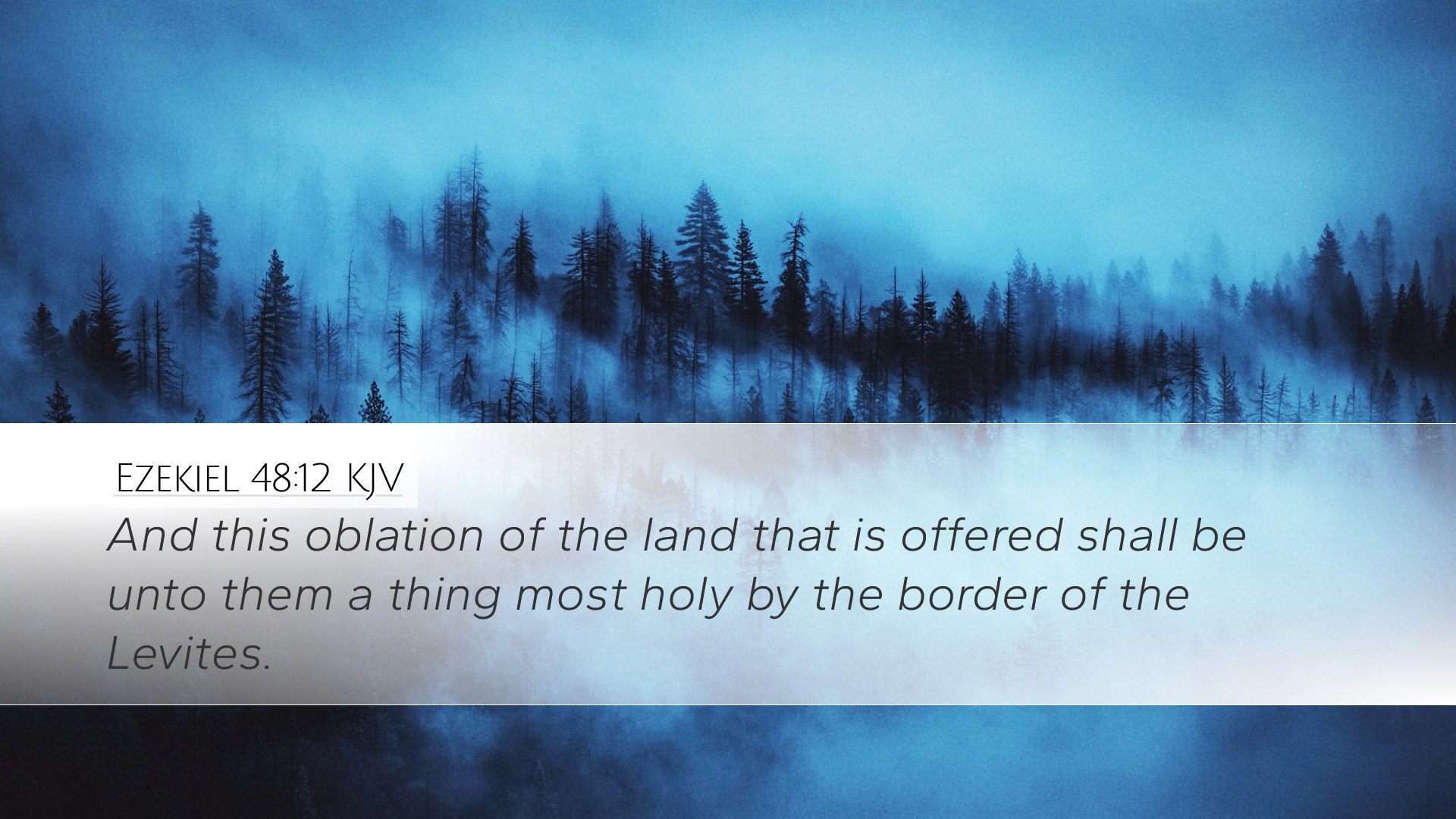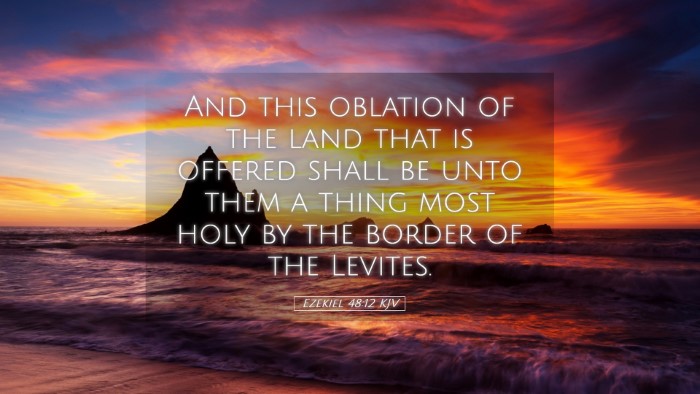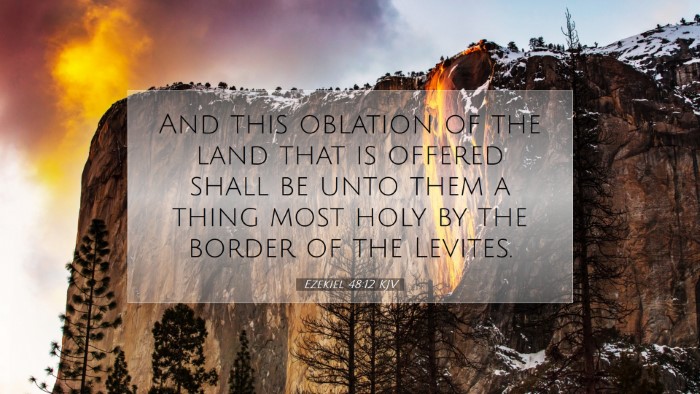Ezekiel 48:12 Commentary
Verse Context: Ezekiel 48:12 states, "And the residue shall be for the priests, the sanctified of the sons of Zadok, which have kept my charge, which went not astray when the children of Israel went astray, as the Levites went astray." This verse is part of Ezekiel's vision of the restored land of Israel, emphasizing the role of the clergy and their faithfulness to God.
Overview of the Priestly Lineage
The reference to the "sons of Zadok" plays a crucial role in this passage. Zadok was a high priest during the time of King David and King Solomon, and his lineage symbolizes faithfulness to God's covenant. In the context of the restored Jerusalem, the priesthood is reaffirmed as a critical element in the worship and governance of God’s people.
Insights from Commentaries
Matthew Henry's Commentary
Henry emphasizes the distinction of the Zadokite priests in their dedication to their sacred duties. He asserts that their faithfulness during the trials and tribulations of the nation was rewarded with a prominent place in the future temple. This is significant as it demonstrates God's unwavering commitment to those who remain loyal in their service to Him.
He further notes that this designation comes with the responsibility of teaching the people the differences between the holy and the profane, which speaks to the role of the church today. Pastors and spiritual leaders are called to maintain the integrity of the faith and guide their congregations in righteousness.
Albert Barnes’ Notes on the Bible
Barnes highlights the implication of "the residue shall be for the priests," pointing out that this not only gives them a physical allocation of resources but also signifies their spiritual authority. The phrase "which have kept my charge" indicates a continual devotion and adherence to God's commandments despite widespread unfaithfulness among the people.
Barnes also brings forth the theological context, connecting this verse to the New Testament principle of faithfulness and reward. He argues that God honors those who maintain their convictions and work toward holiness, thus serving as a refuge for modern believers looking for assurance in their dedication to God amidst societal distractions.
Adam Clarke's Commentary
Clarke brings attention to the notion of preservation and sanctification found within this verse. He reflects on the significance of the priests’ separation from sin — a quality that is essential for maintaining holiness among God’s people. The priests' allegiance during Israel's rebellions shows them as models of constancy and faithfulness that modern believers should strive to emulate.
Moreover, Clarke discusses the concept of reward for faithfulness, elucidating that the promise of this land symbolizes spiritual blessings awaiting those who remain steadfast. The priests' heritage is a reminder of divine grace and the importance of obedience, echoing the New Testament's call to faithful service.
Theological Implications
The implications of this verse extend beyond the immediate context of the early Israelite nation. It speaks profoundly to the understanding of priesthood in both the Old and New Testaments. The role of the priest has evolved; however, the essence remains — a mediator between God and His people, tasked with upholding God's standards.
- Faithfulness as a Theme: The emphasis on faithfulness sets a benchmark for spiritual leaders today.
- Sacred Responsibilities: The admonishment to “teach the people” translates into modern pastoral duties that remain essential for congregational growth.
- The Call to Sanctification: The reminder of being sanctified in the face of temptation serves as an encouragement for present-day believers.
Conclusion
Ezekiel 48:12 is more than a statement about land allocation; it is a profound declaration of loyalty, responsibility, and the rewards of faithfulness in service to God. For pastors, theologians, and students of the Bible, it offers a model of how spiritual leaders ought to conduct themselves and the recognition that true commitment, even amidst widespread disobedience, yields divine favor and blessings. In light of this passage, let us aspire to the qualities exemplified by the sons of Zadok, remaining steadfast in our spiritual duties, dedicated to guiding others towards holiness, and embodying the principles of God’s enduring covenant.


